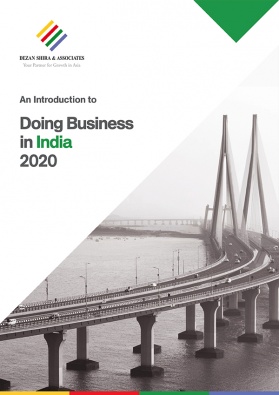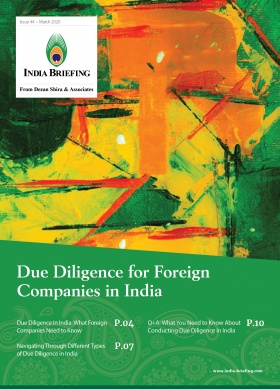Manufacturing Toys in India: Import Regime, BIS Certification, and Planned Clusters
Investors should note that various polices have aligned to give manufacturing toys in India a major push, including creating an industrial ecosystem and establishing hubs, besides introducing import hikes and strengthening quality control checks.
Prime Minister Narendra Modi mentioned India’s lag in toy manufacturing on a radio broadcast a few weeks ago, resulting in a resurgent interest in this marginalized segment.
Putting his words into context, key developments in the year have sought to promote the growth of toy manufacturing in India – proposed import duty hikes, higher certification standards for import of foreign toys, and allotment of manufacturing plots and investment zones.
The almost sudden emphasis on Indian toy manufacturing can be read as part of the government’s plan to resuscitate growth of and investment into labor-intensive manufacturing segments where India can compete more effectively with China, besides also generating much needed local jobs and supporting the MSME sector.
Other products that could benefit from this domestic manufacturing focus include furniture, leather, footwear, electric vehicles, auto components, textiles, air conditioners, agro-chemicals, among others. While India continues to seek greater foreign investment and boost trade, the Modi government remains invested in the ‘self-reliance’ narrative.
As with all plans and programs in India, their success will depend on implementation, reliable access to incentives, and ease of doing business.
In this article, we focus on India’s toy manufacturing industry and recent developments that aim to shore up domestic capacity and boost India’s export capabilities.
Import duty hike on toys
Earlier in the year, India’s finance ministry had proposed raising the customs or import duty from 20 to 60 percent on toys like tricycles, dolls, and puzzles.
This will hit toy retailers and the wholesale market in India, which imports toys worth about INR 25 billion (US$340.17 million) of which 75 percent is sourced from China. (US$1=INR 73.49).
Unfortunately, under COVID-19, the retail demand for toys has crashed but the price of toys has shot up by at least 40 percent in the wholesale market due to the import duty hike.
India’s own toy industry is worth around US$1.75 billion.
Mandatory compliance for quality control for toy makers, imports from September 1
From September 1, 2020 toy manufacturers and importers in India are mandated to comply with quality control (QC) obligations established by the Bureau of Indian Standards (BIS) to meet safety standards.
The BIS certification is compulsory for toys being sold in the Indian market. The certification will bear the standard mark under a license, which is granted by the Bureau, according to the Scheme-I of Schedule-II of the BIS (Conformity Assessment) Regulations, 2018.
The QC compliance was introduced earlier this year under The Toys (Quality Control) Order, 2020, published on February 26, by the central government in keeping with the norms of the Bureau of Indian Standards Act, 2016. The Order standardizes the regulation of toys and materials used for play by children and other such products.
How does the BIS grant a license?
The Bureau grants a license based on the successful assessment of the manufacturing infrastructure, production process, quality control, and testing capabilities of a manufacturer through a visit to its manufacturing premises. Conformity of the product to the relevant standard(s) is also established through third-party laboratory testing or testing in the manufacturing premises or a combination of both.
The guidelines for Grant of License (GoL) as per the conformity assessment Scheme-I of Schedule-II of the BIS (Conformity Assessment) Regulations, 2018 stipulates the procedure for Grant of License (GoL). These are to be read in conjunction with BIS Act 2016, BIS Rules 2018, and BIS (Conformity Assessment) Regulations 2018.
Registration for BIS license
Toy manufacturers – both domestic and foreign – who are applying for a BIS licence can access the certification scheme as available on the BIS website www.bis.gov.in.
For the purpose of this certification, toys are classified into the following categories as shown in the table below.
Manufacturers will need to choose the applicable primary standard based on the type of toy for which they are requesting a license. For more than one type of toy, the manufacturer will need to submit separate applications for each – based on their respective specifications/properties.
Below is a table showing the specifications under BIS standards in India for the toys segment.
Toy manufacturing SEZ announced in Karnataka
India’s first toy manufacturing cluster has been identified in Koppal, in the southern state of Karnataka. The cluster, designed as a special economic zone (SEZ), will be a 400-acre facility and aims to generate 40,000 jobs in five years. Located on National Highway 63, the Koppal Toy Cluster is well connected by highway, ports, airports, and to major cities.
Karnataka is the third-largest market for toys in India with a market value of about US$159 million or 9.1 percent of the national market, as per government estimates. Karnataka’s toy industry averaged a growth of 18 percent from 2010-17 and is expected to reach US$310 million by 2023.
Developing the manufacturing cluster at Koppal is Aequs Aerospace, which previously set up the country’s first aerospace SEZ at Belgavi, a district in Karnataka.
Aequs is expected to build the infrastructure for setting up the manufacturing units while the Karnataka government will facilitate foreign investment into the SEZ. According to the company, the Koppal Toy Cluster will have “benefits addressing both SEZ for exports and domestic tariff area (DTA) for the domestic market for all the infrastructure requirements of the toy manufacturing industry (both plastic and electronic) with capabilities like design, molding, painting, PCBA, printing, and packaging.” The Koppal Toy Cluster is expected to commence operations by Q3 2020. The Karnataka state government hopes to attract investment of about INR 50 billion (US$680.34 million) at the toy manufacturing cluster.
In terms of the overall ecosystem conducive to toy manufacturing, the Karnataka government has supported tool manufacturing and precision engineering capacity by setting up the first Integrated Machine Tool Park (TMTP) in India in the 540-acre facility at Vasanthanarasapura in the Tumakuru district. Karnataka accounts for 50 percent of India’s total share in machine tool production. A global precision engineering SEZ is getting set up in Belagavi and global engineering SEZ at Mangaluru (formerly, Mangalore).
Karnataka also has polymers manufacturing clusters in Bengaluru (formerly, Bangalore), Dharwad, Tumakuru, and Mysuru (formerly, Mysore). The state has also set up design capacity and testing certification centers in Bengaluru, Dharwad, and Koppal.
Upcoming toy manufacturing hub in Greater Noida
The north Indian state of Uttar Pradesh (UP) has identified an area for setting up a toy manufacturing hub in the urban industrial zone of Greater Noida, located near the capital, Delhi.
As per the UP-state government and reported in the media, 92 applications have been received from domestic toy manufacturers to set up units at the hub. Around 100 acres of land with 155 plots of different sizes is set to be allotted for toy manufacturers with an expected investment of INR 30 billion (US$408.15 million). Leading Indian toy makers, FunZoo, Ankit Toys, Toy Treasurers, and Funride have reportedly applied for plots. The plot sizes range from 1,000 square meters to 10,000 square meters.
Around 25,000 jobs could be generated once the toy manufacturing hub is operational.
The location of the upcoming toy manufacturing hub is near the new Jewar airport, where 146.50 hectares of industrial land were allotted to 69 firms during the pandemic, according to Yamuna Expressway Industrial Development Authority (YEIDA) officials.
As per media reports, work has begun on the first phase of the international airport in Jewar, spread over 1,300 hectares of land, which is set to be functional after two years. The fully built area of the airport would cover 5,000 hectares.
About Us
India Briefing is produced by Dezan Shira & Associates. The firm assists foreign investors throughout Asia from offices across the world, including in Delhi and Mumbai. Readers may write to india@dezshira.com for business support in India.
- Previous Article Medical Devices in India: Key Considerations for Foreign Investors, Importers
- Next Article After IT, Telangana Wants to be India’s Electric Vehicles Hub










